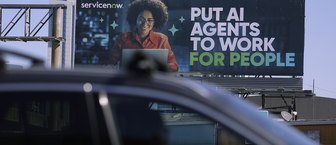There’s much excitement around the potential of artificial intelligence, but many Americans are also feeling cautious about the implications of AI. A new YouGov survey finds that some people believe AI is already smarter than people, and some even worry that it’s going to be the thing that ends humanity altogether. Despite these worries, many Americans — particularly young Americans — say it’s making their life easier, and many believe it will have positive effects on society and the U.S. economy.
The dominant feeling Americans have about artificial intelligence is caution. 54% describe their feelings towards AI using the word "cautious." 49% say they are concerned, 40% are skeptical, 29% are curious, and 22% are scared.
44% of Americans say it’s likely that AI will eventually become more intelligent than people, including 22% who believe this is very likely. 14% of Americans say AI is already more intelligent than people.
Many Americans are concerned that AI will cause the end of the world as we know it. 15% are very concerned about the possibility that artificial intelligence will cause the end of the human race on Earth. One-quarter (24%) are somewhat concerned about this, while 25% are not very concerned and 19% are not at all concerned.
Although many believe AI will become more intelligent than people — intelligent enough to wipe out humanity, even — there are some things Americans don’t yet trust AI to do.
55% say they don’t trust AI much (23%) or at all (32%) to make unbiased decisions. Even more (62%) don’t trust it to make ethical decisions, and 45% don’t trust it to provide accurate information.
Adults under 30 are more likely than older generations to trust AI a great deal or a fair amount to make unbiased decisions (49%), make ethical decisions (42%), or provide accurate information (57%).
Some of these feelings and concerns may be related to perceptions of whether AI is a positive or negative thing for society and one’s own life.
Americans are more likely to believe the effects of AI on society are going to be negative (42%) rather than positive (27%). 19% think the effect on society will be neither positive nor negative.
However, fewer Americans believe AI will be a negative force in their own life: Only 27% say it will have a negative effect on them. A nearly equal number (25%) think it will have a positive effect, and 32% think the impact on their own life will be neither positive nor negative.
Americans are slightly more likely to believe that AI will have a negative effect (33%) on the U.S. economy rather than a positive one (27%).
Adults under 45 are more likely than older Americans to believe AI will have a positive impact on society (36% vs. 19%), a positive impact on their own life (38% vs. 15%), and a positive impact on the U.S. economy (36% vs. 20%).
In June 2023, a YouGov survey asked Americans about the overall effects of different technologies, including AI, on society. At that time, fewer Americans (35%) believed that AI was having a negative effect on society than the 42% who do today.
Nearly all (88%) Americans know at least a little bit about AI, including 10% who say they know a great deal, 36% who know a fair amount, and 43% who don’t know much about AI. Just 7% say they know nothing at all about AI and the remaining 5% are not sure.
Adults under 30 (20%) are more likely than people 30 and older (7%) to say they know a great deal about AI.
Fewer than half (44%) of Americans report using artificial intelligence tools with any frequency, while 20% are unsure how often they use these tools. Among adults under 30, 45% use AI at least monthly.
Among U.S. adult citizens, the most-used AI tools are text generation (23% report having used this in the past month) and chatbots (22%). Fewer have used virtual personal assistants (15%), facial recognition (15%), image generation (10%), or robots (4%) in the past month. Adults under 45 are more likely than those over 45 to have used all types of AI asked about in the survey.
Despite caution about AI’s future impact, 31% of Americans say AI is making their life easier, more than twice the number of people who say it’s making their life harder (13%). The largest group (36%) say it’s not making their life easier or harder, and 20% are not sure.
Adults under 45 (46%) are particularly likely to say AI is making their life easier; 18% of people 45 and older agree.
— Taylor Orth and Carl Bialik contributed to this article
Related:
- Majorities of Americans are concerned about the spread of AI deepfakes and propaganda
- Which technologies do Americans associate with AI?
- Which tasks will AI do better than human professionals in the next decade, according to Americans?
See the results for this YouGov poll
Methodology: The poll was conducted among 1,073 U.S. adult citizens from March 14 - 18, 2024. Respondents were selected from YouGov’s opt-in panel using sample matching. A random sample (stratified by gender, age, race, education, geographic region, and voter registration) was selected from the 2019 American Community Survey. The sample was weighted according to gender, age, race, education, 2020 election turnout and presidential vote, baseline party identification, and current voter registration status. Demographic weighting targets come from the 2019 American Community Survey. Baseline party identification is the respondent’s most recent answer given prior to November 1, 2022, and is weighted to the estimated distribution at that time (33% Democratic, 31% Republican). The margin of error for the overall sample is approximately 4%.
Image: Getty (Jonathan Kitchen)








